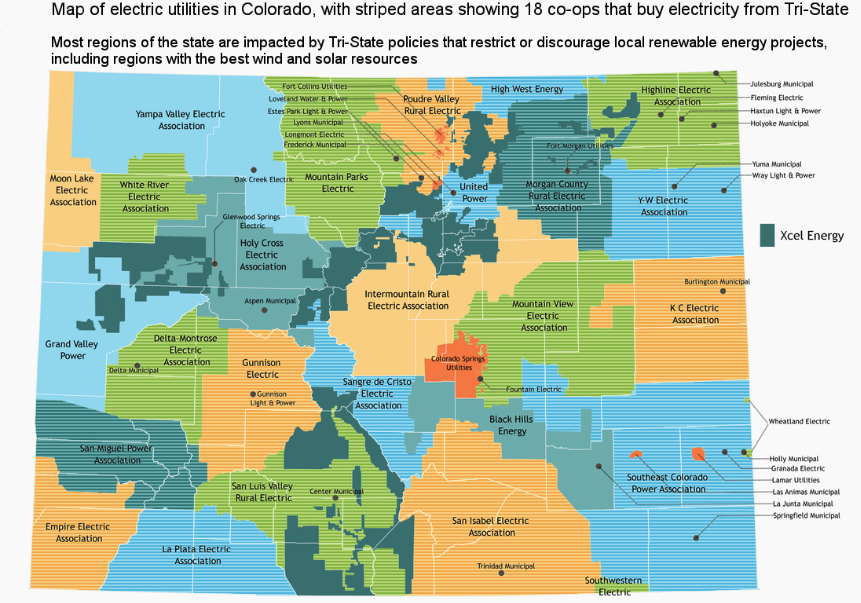- An Alliance For Community Action
- (970) 256-7650
- info@WesternColoradoAlliance.org
Help Tri-State clean up its climate act
Tri-State Generation and Transmission supplies power to over 1.3 million customers in the rural West, including many Colorado Rural Electric Associations. Yet the utility ranks as the 6th dirtiest in the country, reliant on a fleet of aging coal-fired plants. As cheaper and cleaner energy sources have come to dominate the market, Tri-State’s reluctance to shift away from coal has made it radically more expensive than other utilities — at least 28% more costly than Colorado’s Xcel Energy — imposing undue cost on rural communities.
This Spring, these and other criticisms of Tri-State prompted Colorado lawmakers to take the historic step of placing the utility under the authority of the Colorado Public Utilities Commission (PUC). The PUC, which regulates other utilities including Xcel, is now working to develop an Electric Resource Plan that will guide Tri-State’s future and determine the choices available to Rural Electric Cooperatives going forward.
The PUC is currently soliciting citizen comments as it begins the Tri-State Electric Resource Plan process. It needs to hear from Western Colorado — from you.
What’s the matter with Tri-State?
In addition to a coal-dominated generation mix and high costs, Tri-State has famously imposed restrictive contracts on its rural electric association members, requiring that local REAs purchase 95% of their total load from Tri-State. The remaining 5% can be developed locally, including from local renewables, but Tri-State retains control of the pricing of such projects – a power it has used to sabotage local renewables in the past.
Tri-State has also come under criticism for failing to operate as a democratic cooperative. The organization is nominally run as a cooperative of its 42-member Rural Electric Associations, with each voting on key decisions. Critics allege, however, that Tri-State upper management maintains a de facto stranglehold over information and key decisions, which it has used to resist pressure to move beyond coal and expand localized clean energy options.
Colorado communities purchasing energy from Xcel benefit from a mix of greater and increasing amounts of renewables, lower cost, and more flexible contracts (including the ability to purchase 100% clean energy) than those dependent on Tri-State. We believe its time all the citizens of the Western Slope had those same options.
What is our vision for the PUC process?
As the PUC confronts the immense task of helping Tri-State chart a future to decarbonization and lower costs, we suggest encouraging the commissioners to:
- Ensure that Tri-State evaluates the costs of their coal dependency, from consumer rates to climate and air pollution impact to future climate regulatory risk
- Require that Tri-State include a robust workforce transition plan when proposing to retire a polluting electric generating facility to help local communities and workers secure a bridge to the future
- Expand the contractual freedom of member REAs to invest in local renewables, creating good new local jobs and greater resiliency
For all of these reasons, we hope you will comment today!
Joel Dyar joined our Alliance as organizer for clean and renewable energy in 2019. As a 15-year veteran of community organizing in Colorado and six countries, Joel has worked to help social movements and everyday residents discover their power and make their voices heard on a broad spectrum of sustainability, social, and legislative issues. Joel brings a Masters of Community Development and graduate studies in renewable energy and green business to his work on behalf of our energy future.



